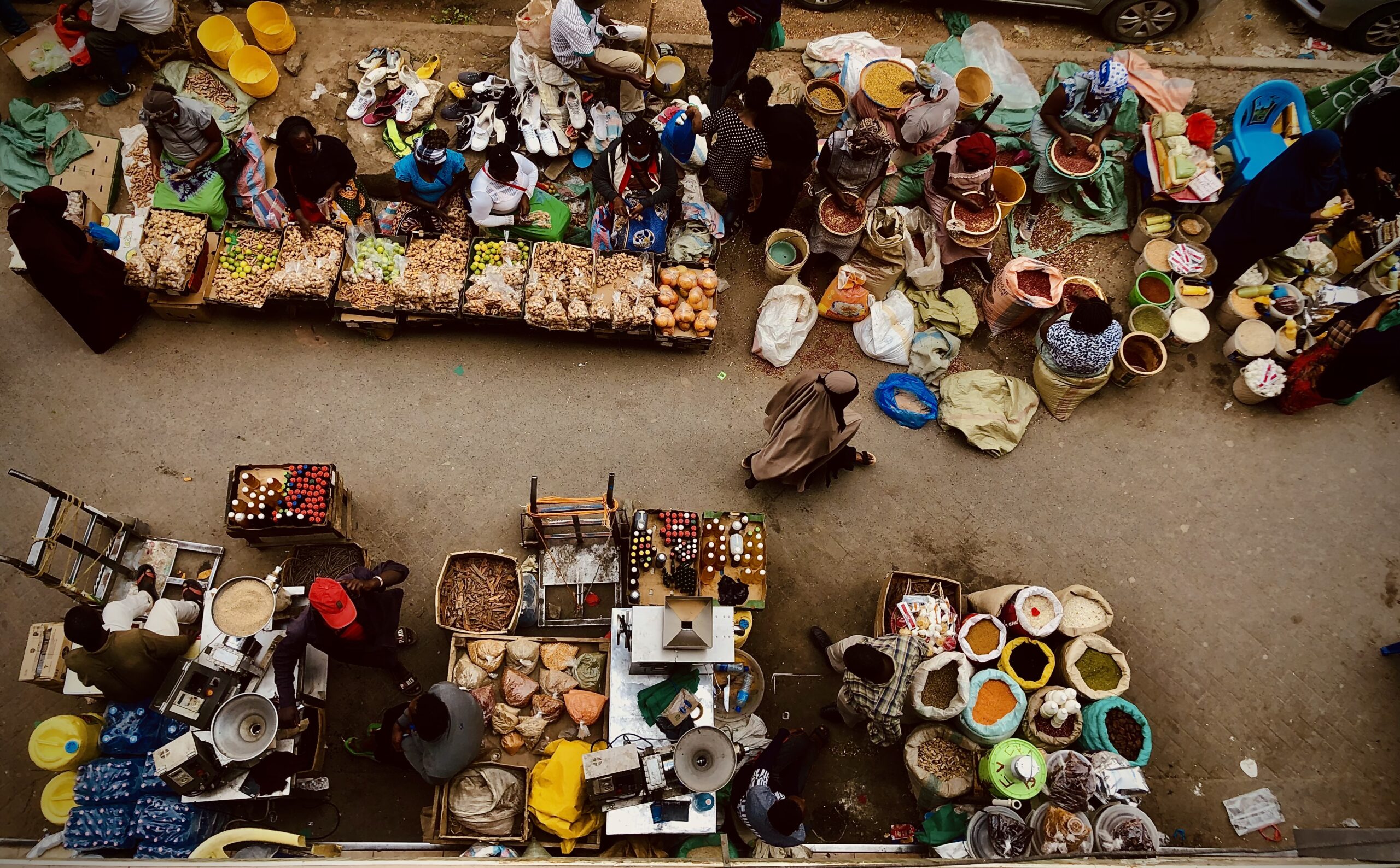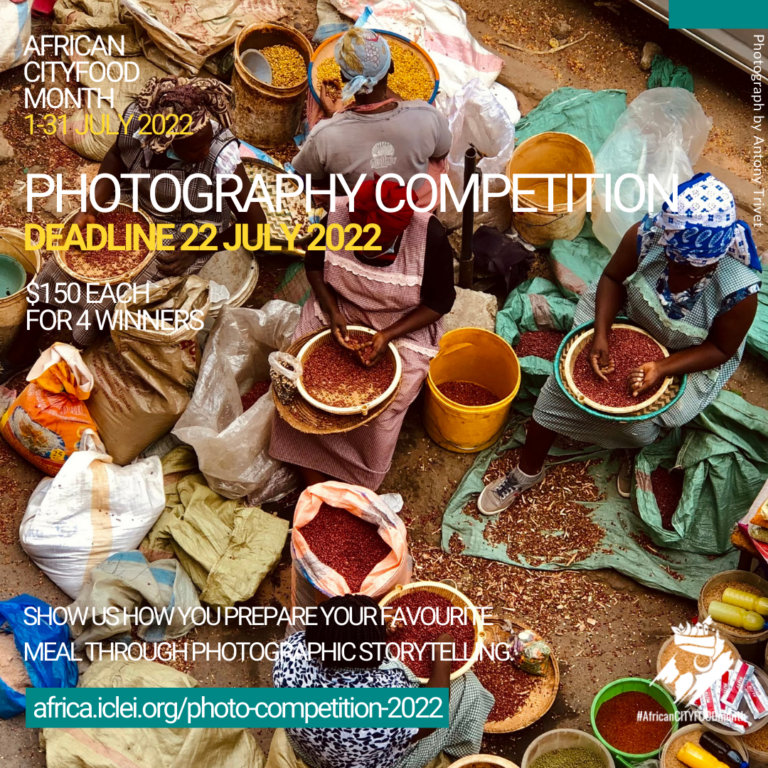13 July 2022
This year’s #AfricanCITYFOODmonth campaign looks to “nourish our cities toward equitable recovery”



The annual campaign, running throughout July, was created in 2020 to support cross-sector, multi-stakeholder engagements and knowledge sharing about urban food systems. This year’s theme, “Nourishing our Cities toward Equitable Recovery”, reflects on the journey of recovery that African cities are taking in the face of multiple shocks and stresses that are being experienced in our cities’ food systems. The 2022 campaign is convened by ICLEI Africa in partnership with FAO, Rikolto and the African Center for Cities (ACC). The exchanges this month have also taken a step back to reflect on whether cities and local governments are putting in place the governance processes and mechanisms as well as mobilising the resources required to steer the transformation of the food system to a more sustainable, resilient and inclusive path.
#AfricanCITYFOODmonth, as a platform, recognises that food can be a powerful lever for solving many problems in cities as it is connected to how we plan and run our cities as well as our daily lives. Using food as an entry point, we can support daily nutrition and wellbeing for millions of urban dwellers, regenerate ecosystems, and connect urban residents. Moreover, sustainable food system initiatives have the potential to support mitigation and adaptation to the rapidly intensifying climate crisis, end the injustice of malnutrition, celebrate local food cultures and improve economic participation.

Each year during July, engagements have been held with local governments, non-government organisations, researchers, private agri businesses, civil society organisations, donors, multilateral organisations, among others, to highlight ongoing initiatives and discuss shared opportunities, challenges, policy actions and advocacy strategies for transforming Africa’s food systems.
To enrich and diversify the discussions, this year’s campaign is bringing together key urban food systems actors such as policymakers, mayors, researchers, agrifood entrepreneurs, financiers and food system advocates to collectively chart a path forward. Beyond African cities, the campaign will connect with other “South” cities in South America, such as Niterói, to collectively share and explore their priorities for recovery and ways to mobilise resources to drive sustainable and resilient food systems.
At ICLEI Africa, we are committed to growing the AfricanCITYFOOD platform with our partners in ways that empower local governments and urban food systems actors to integrate food systems into urban policies, planning and implementation and be part of a network of cities and food systems stakeholders committed to building sustainable and resilient urban food systems.
Be part of the campaign by participating in the remaining webinars, entering the photography competition and sharing case studies, resources and images on sustainable urban food systems with the hashtag #AfricanCITYFOODMonth on Twitter, Instagram and LinkedIn. Find out more here.
Key webinars:
14 July 2022, 10:00 AM SAST
On the road to recovery: “Nourishing our Cities towards equitable recovery”
21 July 2021, 10:00 AM SAST
City-to-City City-to-City Exchange: Streamlining multi-level food systems governance between national and local level
28 July 2022, 14:00 PM SAST
“South-South” Cities Exchange. African and Latin American Cities: Food System Priorities for Recovery

Enter the #AfricanCITYFOODmonth photography competition
Different cities and regions in Africa are endowed with diverse ingredients that are carefully crafted into unique regional delicacies.We invite you to share how you prepare your favourite meal through photographic storytelling, from the sourcing of ingredients to the preparation and final product. Entries close 22 July 2022. Learn more and enter here.


